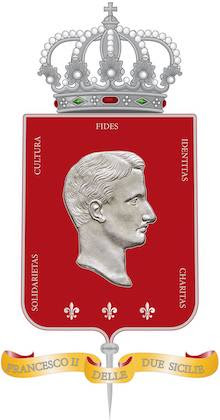Suffering establishes a kind of equality among those who suffer, which makes all men in a manner equal, since all are called upon to suffer. Prosperity separates us; misfortune unites us in a fraternal bond. Suffering rids us of that which we have to excess, and gives us that which we needed, so that it places man in a perfect equilibrium. The haughty do not suffer without a diminution of their pride; nor the ambitious without moderating their ambition; nor the choleric without becoming less inclined to anger; nor the luxurious without being less given to the gratification of their appetites. Pain has a sovereign power to appease the violence of the passions, and, while it takes from us what is debasing, at the same time it imparts to us what is ennobling. The cruel never suffer without being more inclined to compassion; nor the haughty without becoming more humble; nor the voluptuous without growing more chaste. The violent are subdued, the weak are strengthened. It is not in vain that we pass through this great furnace of pain. The greater number come out of this sharp ordeal with exalted virtues, which they never before possessed. The impious are converted to religion, the avaricious to almsgiving, they who had never wept gain the gift of tears, and the hard-hearted become merciful. Pain has an undefined element of power, and of depth, which is the source of all heroism and grandeur. No one has felt this mysterious contact without being thereby animated: the child acquires the manliness of the youth, the youth the maturity and gravity of manhood, men the strength of heroes, and heroes the sanctity of saints.
On the contrary, he who turns aside from pain to court pleasure, commences to descend; and the career of his degradation is rapid and continuous. From the height of sanctity he falls into the abyss of sin; from glory he sinks to infamy; his heroism is changed into weakness, and through the habit of yielding, he loses even the remembrance of firmness, and by falling so often he loses the faculty of rising again. Indulgence in pleasure deprives him of all vitality, paralyses the elasticity and vigor of all the muscles of his body, and all the energies of his soul. In sensual gratification there is a corrupting and enervating power, which slowly and silently kills its victim. Woe to those who respond to this syren but perfidious voice! Woe to those who, when pleasure allures with her perfumes and flowers, remain without fear, for they shall soon cease to be masters of themselves, and shall helplessly fall into that swoon of seeming death, in which she wraps the senses of those who are intoxicated with the aroma of her flowers and the vapors of her perfumes! Then, the unhappy victim either miserably succumbs to this infatuation or he is altogether transformed by it. The child never attains adolescence, the adult withers into seeming old age, and the aged perish. Man is despoiled by pleasure of the strength of his will, of the vigor of his understanding, and loses the instinct of great things. He becomes cynically selfish, excessively cruel, and nameless passions violently agitate him. If he is of mean condition, he will fall from the hands of justice into the hands of the executioner. If he is of exalted rank, he will excite terror and indignation by the unrestrained indulgence of his rapacious and ferocious instincts. When God wishes to chastise a nation for its sins, He enslaves it under the dominion of voluptuous men, who, stupefied with the opium of sensual gratification, can only be aroused from their brutal insensibility by the fumes of blood. All those horrid monsters, whom the pretorians in the days of imperial Rome saluted as emperors, were voluptuous and effeminate men. Revolutionary France worshiped at the same time prostitution and death; while prostitution triumphed in her temples and at her altars, death was worshiped in her public places and on her scaffolds.
* Reprinted from Essays on Catholicism, Liberalism, and Socialism: Considered in Their Fundamental Principles by Juan Donoso Cortés, Marquis of Valdegamas, Preserving Christian Publications, 2014, pp.154-156










